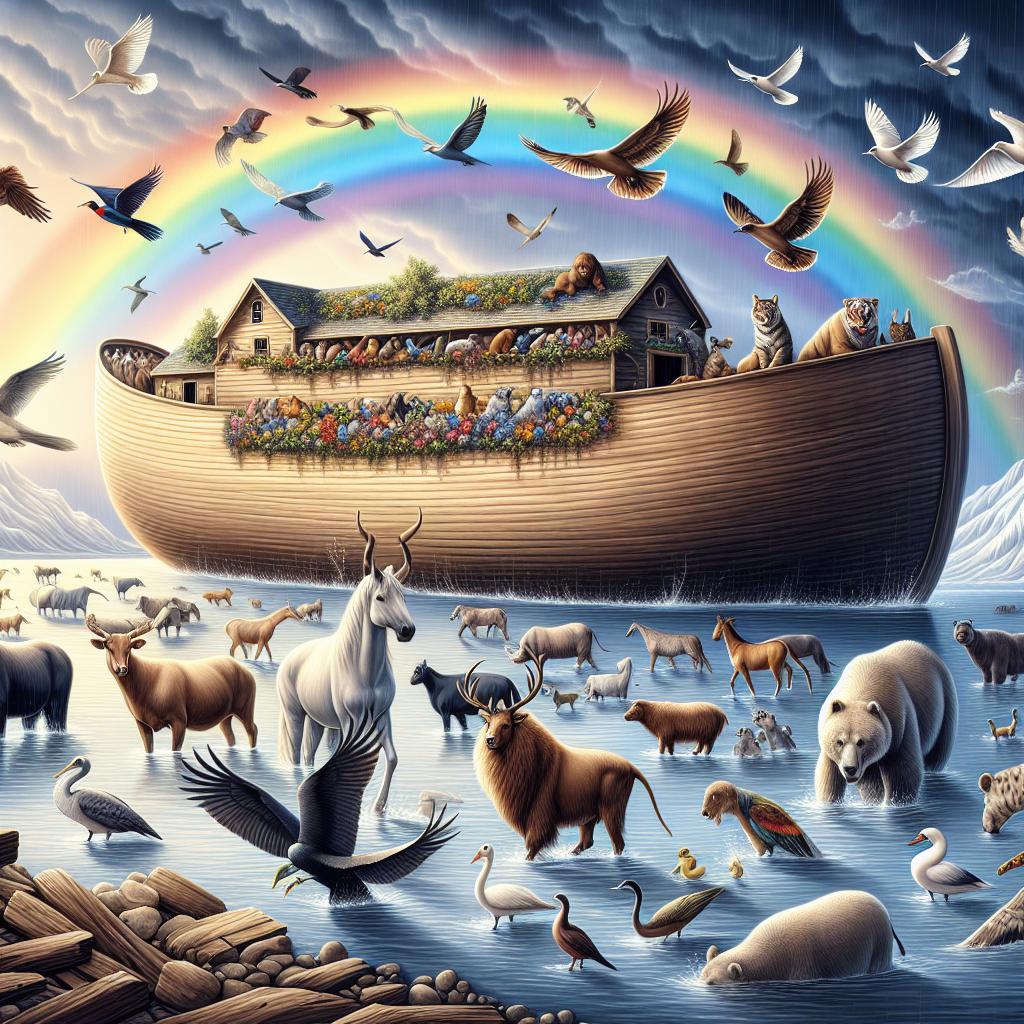
Divine Design: Exploring Hibernation, Migration, and the Ark in Christian Perspective
Published: 06 June 2024
Hibernation, Migration, and the Ark
Introduction
The concept of hibernation and migration has been a topic of interest in relation to the biblical story of Noah's Ark. A recent study on a marsupial's ability to hibernate for an extended period has sparked discussion among creationists. While this finding may seem to support the feasibility of animals hibernating during the Flood, it is important to delve deeper into the topic and consider various factors.
The Discovery
The study focused on the pygmy possum, a marsupial known for its opportunistic non-seasonal hibernation behavior. Researchers aimed to determine if these possums could hibernate for an extended period, relying solely on their fat reserves. The results were impressive, with the possums hibernating for an average of 310 days and one individual reaching 367 days.
How it Relates to the Flood Account
At first glance, the idea of animals hibernating during the Flood seems plausible. It would simplify the task of caring for thousands of animals for a year by reducing the need for food and water. Additionally, it could alleviate the fear and restlessness experienced by the confined animals during the tumultuous journey on the Ark.
Creationist authors have previously suggested that animals may have entered a state of prolonged hibernation during the Flood. While this suggestion is reasonable, it is crucial to note that even without hibernation, the Ark journey would still be feasible. Detailed studies, such as John Woodmorappe's "Noah's Ark: A Feasibility Study," provide compelling arguments supporting the practicality of the Ark. Therefore, raising the issue of hibernation for apologetic purposes is not essential but can offer valuable insights.
Reducing the Need for Miracles
When discussing topics like hibernation or migration in relation to Noah's Ark, one aims to minimize the need for miraculous explanations. This approach seeks to provide naturalistic interpretations without multiplying unnecessary miracles. However, it is important to distinguish between minimizing supernatural elements and denying the miraculous nature of Scripture.
The Flood account in Genesis demonstrates what Henry Morris called the "economy of miracle" seen throughout the Bible. God, capable of suspending natural laws, chose to utilize principles such as buoyancy to ensure the Ark's stability. He could have taken a more miraculous approach, yet He provided detailed instructions for the construction of the Ark. The absence of excessive miracles in the Bible distinguishes its authenticity from apocryphal texts filled with capricious miracles.
While hibernation may simplify the journey on the Ark, it is crucial to recognize that appealing to existing natural instincts does not eliminate the need for supernatural intervention.
Migration: A Parallel to Hibernation
Creation apologists often point to migration instincts in animals as a naturalistic explanation for their journey to the Ark. However, this approach also has limitations. Migration instincts are not universally present among animals. Even if some species possess migratory instincts, it does not explain how all animals would have traveled to the Ark. Furthermore, existing instincts do not guide animals towards man-made boats.
It becomes evident that a significant miracle was involved in the selection and gathering of animals for the Ark. Noah did not have to embark on a global search for animals; rather, God sent them to him. Witnessing pairs of animals migrating towards the Ark would have been a powerful testament to God's hand at work.
While some argue that God could have modified existing migratory instincts, it is important to acknowledge that many animals would have required entirely new instincts created specifically for this purpose. The extensive level of specificity and complexity involved in reprogramming instincts renders the appeal to existing instincts less effective. It is reasonable to accept that God supernaturally commanded the animals He desired on board the Ark.
The Need for Supernaturalism
While creationists may suggest that God could have utilized or modified existing hibernation instincts for the animals on the Ark, it is essential to recognize the substantial supernatural intervention required to put all animals into a prolonged state of sleep. Not all animals hibernate naturally, which raises the question of why only some animals on the Ark would hibernate and why at that specific time.
Moreover, even if animals were put to sleep by God, it remains unclear if they would have had enough fat reserves to sustain them for an entire year without additional supernatural intervention. The pygmy possum's hibernation abilities offer some intrigue, but it is important to consider that these possums are already programmed for hibernation and possess the capacity to accumulate sufficient fat reserves. Other animals not naturally inclined to hibernate would require special intervention to prepare them for such a journey.
Considering the God of Genesis, who created the universe and all its contained instincts in just six days, it is reasonable to acknowledge His ability to supernaturally orchestrate these events. Rather than appealing to naturalistic explanations like modifying instincts, it is more straightforward to accept that God directly commanded the animals to travel to and board the Ark.
Why This Matters
Exploring the feasibility of hibernation and migration during the Flood helps us understand the complexity of this biblical event. It highlights the need for supernatural intervention and emphasizes that God's power surpasses natural processes. Recognizing God's role in orchestrating these events reinforces our faith in Him as the Creator and Sustainer of all things.
Think About It
- How does the absence of excessive miracles in the Bible distinguish it from apocryphal texts?
- Why do you think God chose to utilize natural principles like buoyancy in constructing the Ark?
- Consider the significance of animals migrating towards the Ark as a testimony to God's intervention. How might this have impacted observers at that time?
